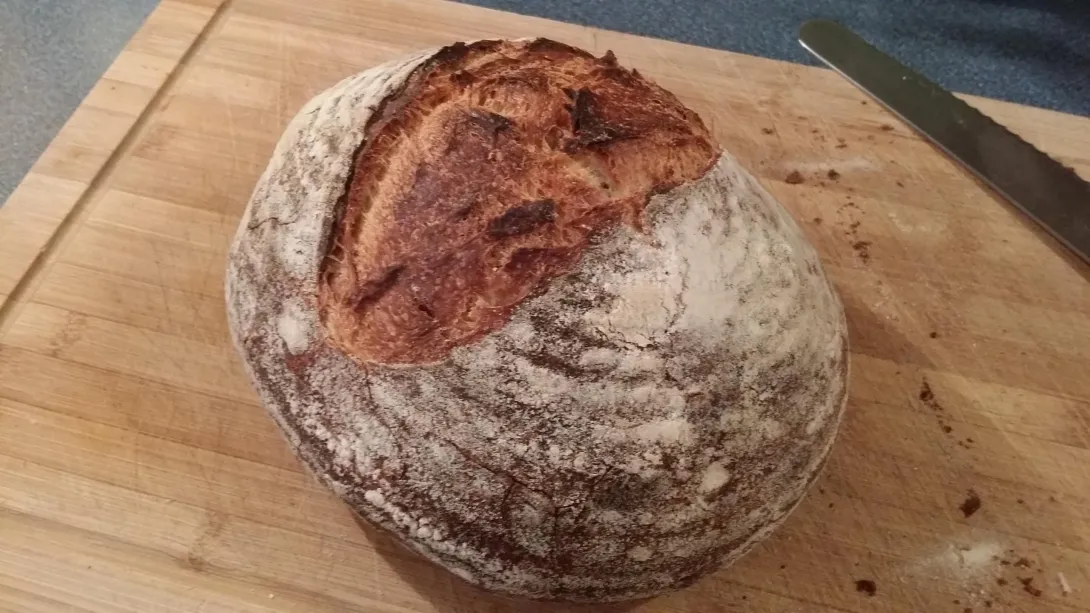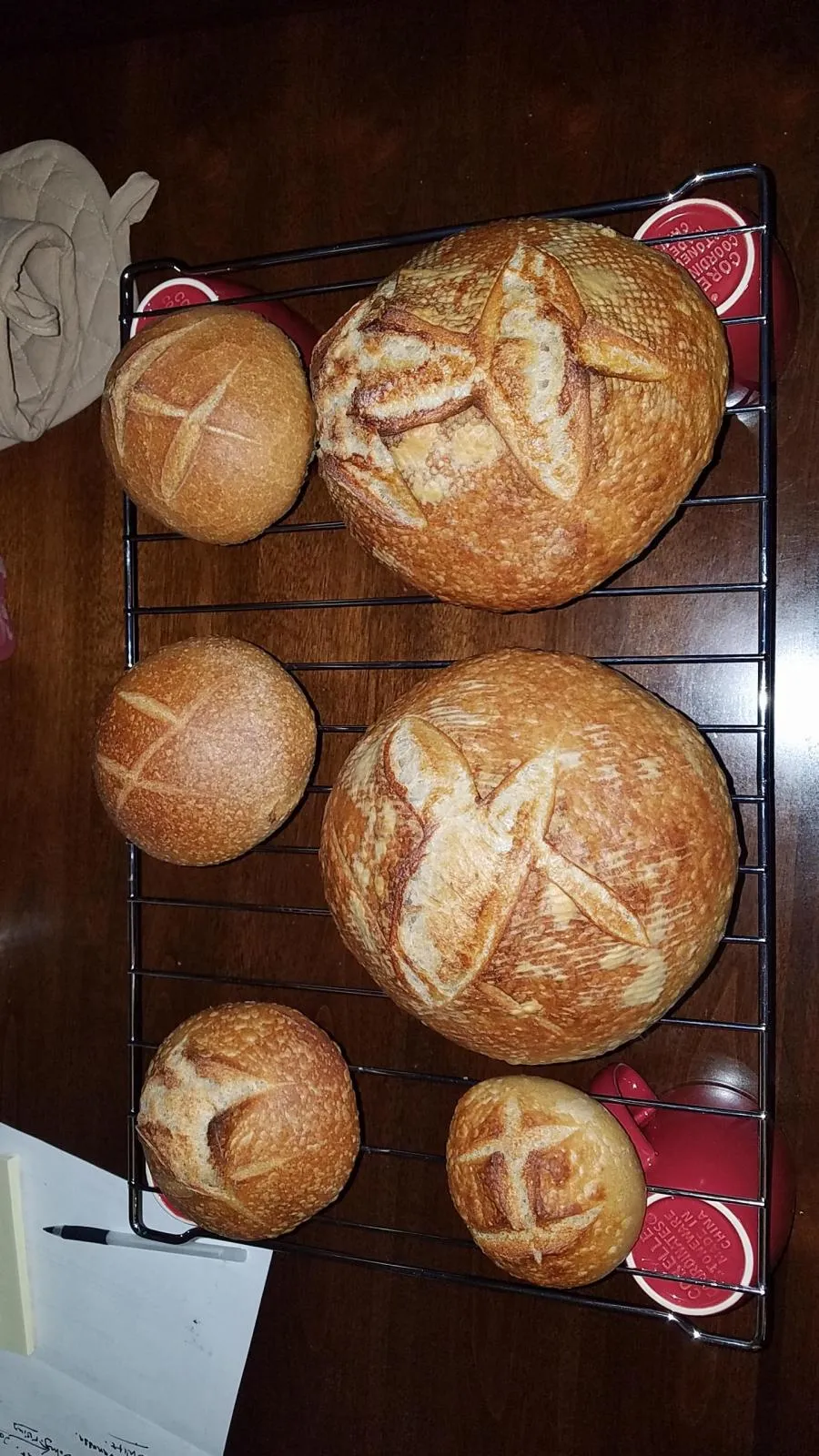
Could anyone offer me some pointers on how I might get the crust on my San Francisco sourdough to be more shiny, orange and blistered?
I use Peter Reinhart's recipe from Artisan Breads Everyday and I get a really nice loaf. It just doesn't look like what I expect a traditional San Francisco sourdough to look like. It looks just like my pain au levain.
Many thanks and regards
Sarah
I assume you are referring to the same kind of orange shine exterior that the Tartine Country loaf boasts on the front cover of Chad Robertson's book for example. I was able to achieve similar results by incorporating A LOT of steam. They are able to achieve this easier in professional ovens, with high heat and steam injection. My results can be found here: http://www.thefreshloaf.com/node/41089/happy-holidays-tflers-some-sourdough
Not quite there but getting closer.
Good luck!
John
Yes, I agree steam is key to shiny crust.
I agree with the steam part, but I also think that cold proofing would help you achieve blisters all over.
I've found that baking in a dutch oven (closed environment) got me the crust i was looking for, but only if I used no flour to shape, and I proofed the bread in the cold dutch oven (basically a bench proofing), which then went into a hot, preheated oven to bake (such as the picture of my "oakland sourdough" recipe).
This worked well in the oven I had at my old place, which was a nice viking oven. In my current apartment however, I have had terrible luck with this same method (standard cheap apartment oven), and have adjusted to pre-heating the dutch oven. This requires me to proof in a basket or on a cloth, and the flour used to keep it from sticking to these surfaces seems to hide the shiny crust below (such has my recent boule bread picture). That or it's something totally intangable that I missed, but I just can't get that same crust in the current oven.
Achieving the look of San Francisco Sourdough French Bread requires persistence and practice, practice, practice. In my case it took around three years to finally achieve repeatable results.
Some hard learned pointers:
Below is a shot of our Pain Quotidien (daily bread):
Wild-Yeast
Thank you for your time and these pointers.
Some I already utilise but not the final refrigerated proof. I have since experimented with it and have some lovely blistery loaves.
My oven tends to overcook the crust and leave a gummy interior if I don't reduce the baking temp from 500f at insertion to 430f for the remainder of the bake.
It is indeed a journey.
Sarah
Hi Sarah,
Do you use a baking stone? If so how thick is it?
Wild-Yeast
Hello
Yes I do. It is 1/2" thick and glazed on top.
I have also used an unglazed pizza stone quite often. It too is 1/2" thick.
Regards
S
I've been fighting for the same thing for quite some time when I found out it is a lot of steam right after you take it out of the fridge. This is my kind of results.
Image
